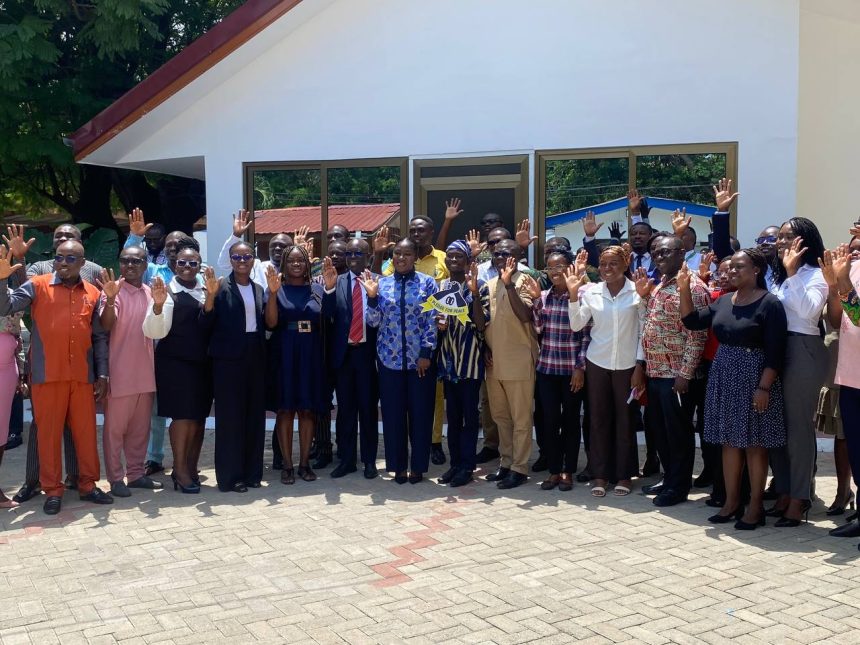The National Youth Peace and Security Working Group has been inaugurated to empower young people to contribute to peace and security in Ghana.
The group, established by the National Youth Authority, the United Nations Population Fund (UNFPA) Ghana, and other partners aims to coordinate the development of an action plan on youth peace and security.
Speaking at the inauguration at the UNFPA Ghana Loft on Tuesday May 28, 2024, the UNFPA Country Representative, Dr. Wilfred Ochan, expressed his excitement and support for the inauguration of the group.
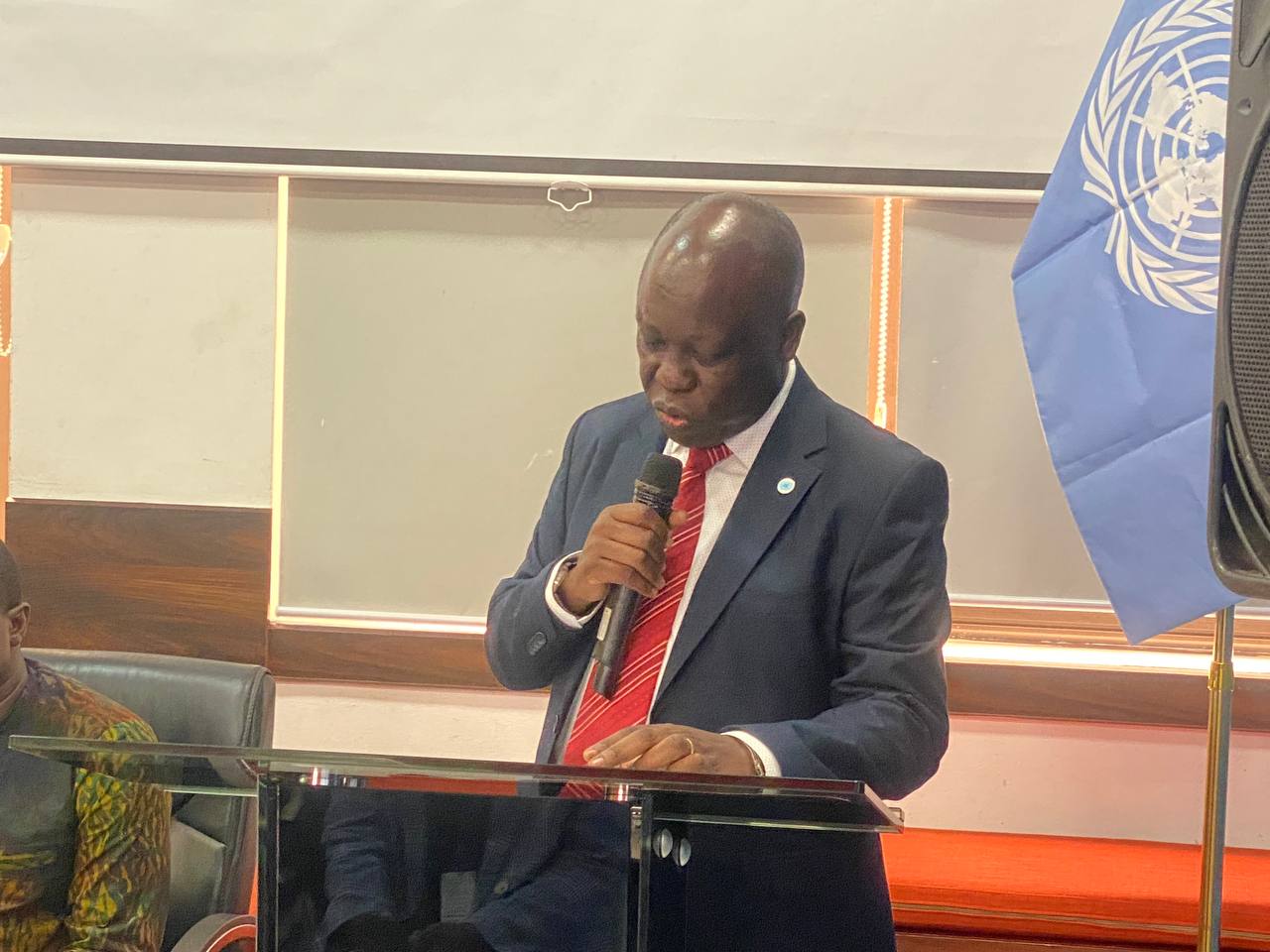
He added that the focus on young people in peacebuilding and development will go a long way to make the country a better place.
“The National Youth Peace and Security Working Group is going to help us create a national action plan. I am happy because I have been part of and observing the process from the start. We are looking forward to a fruitful document. We look to the wisdom and the infusion of the energy and passion of young people to make sure their ideas are part of this document,” he said.
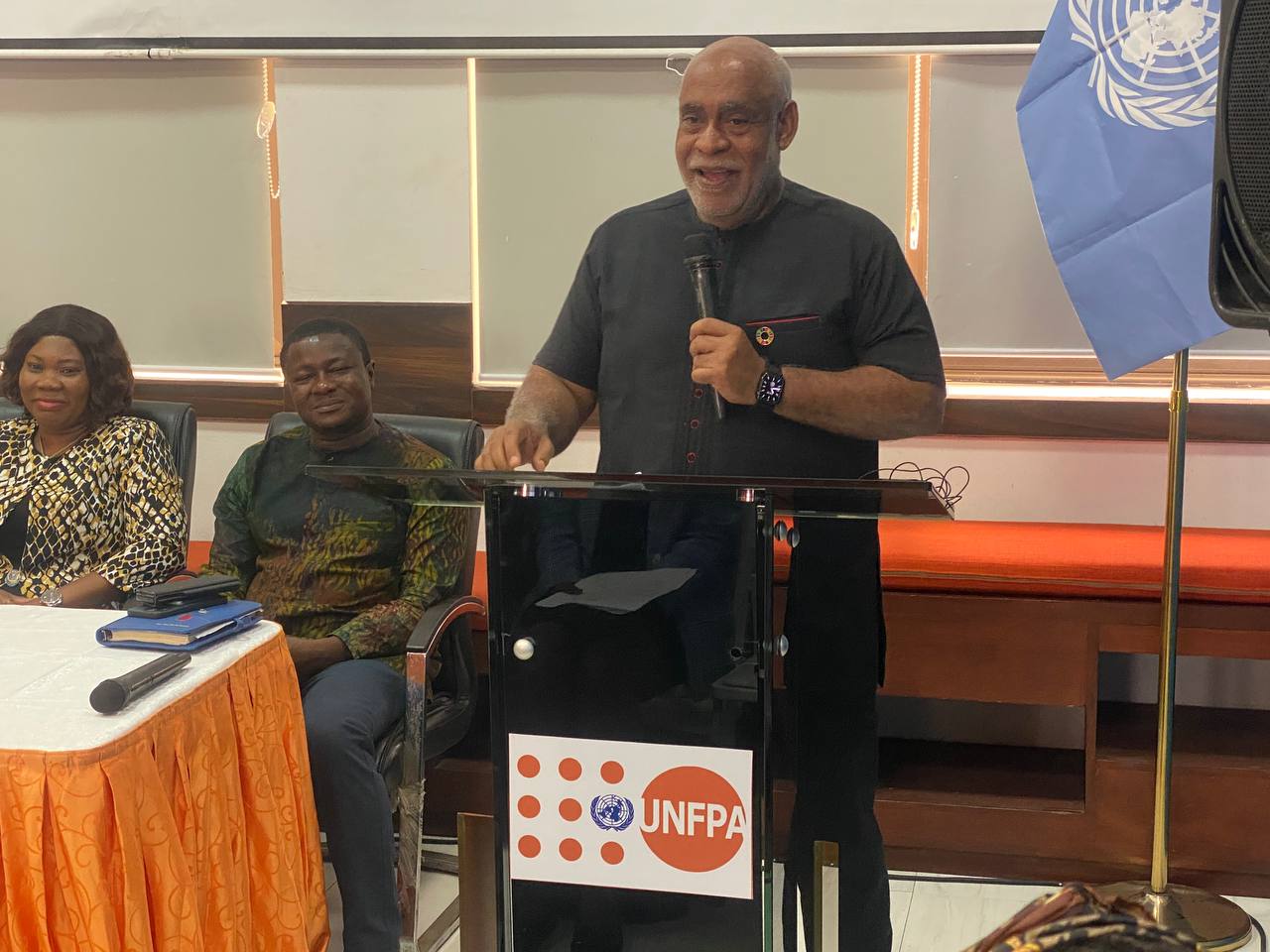
The United Nations (UN) Resident Coordinator, H.E. Charles Abani, who also gave brief remarks at the inauguration, called for a bipartisan approach to the development of a national policy on youth peace and security in Ghana.
Mr. Abani emphasized the importance of integrating young people in peacebuilding efforts.
“We are in an era with the largest youth population on this planet. Nearly 2 billion of our population will be young people and we also live in an era of exponential digital connection. That means that actually young people are connected much better than humanity has ever been connected ever before,” he said.
Mr. Charles Abani highlighted the importance of recognizing the vital role of young people in peace and security, citing the UN’s Resolution 2250 on Youth, Peace and Security.
He also commended Ghana’s track record on working with the UN on peace and security issues, including its role in peacekeeping missions and its establishment of the Peace Council.
The UN Resident Coordinator charged the technical working group to take their assignment seriously, as it will serve 40% of Ghanaians.
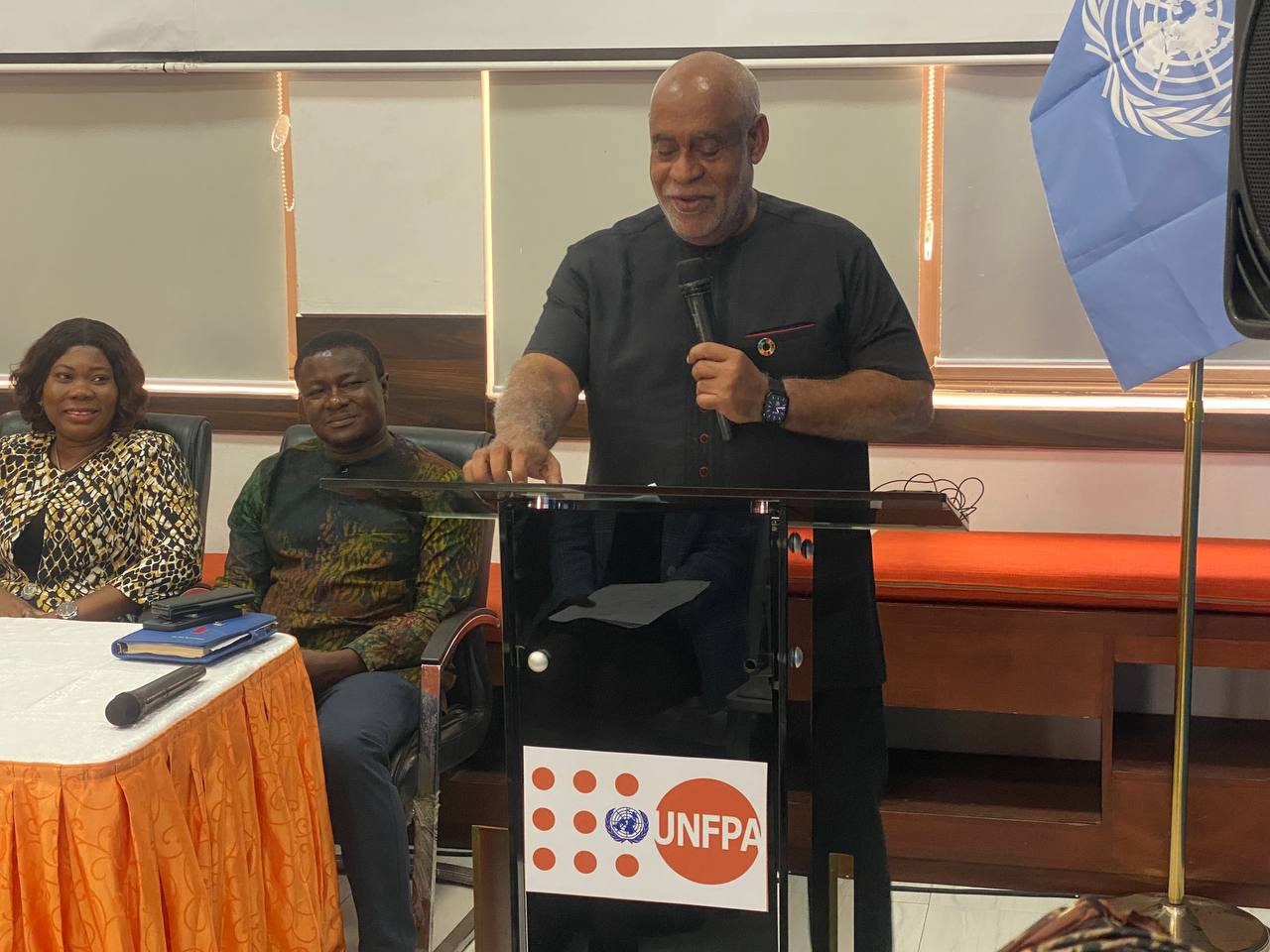
He encouraged the active participation of all stakeholders, including young people, governments, development partners, traditional and religious leaders, youth organizations, research and academic institutions, and the UN system.
Charles Abani advised that the process should be guided by mutual respect, free from political affiliations, and able to influence all young people, irrespective of their political views.
He offered the UN’s continued support throughout the process and announced a sum of money set aside for a thoughtful conversation within the UN about what more can be done specifically with young people in the three important areas of inclusion, economic transformation, and peace and security.
“A plan is only as good as its implementation,” Abani concluded. “So as we do this, and come up with an amazing plan here, let us ensure that we work tirelessly across the board to implement that plan.”
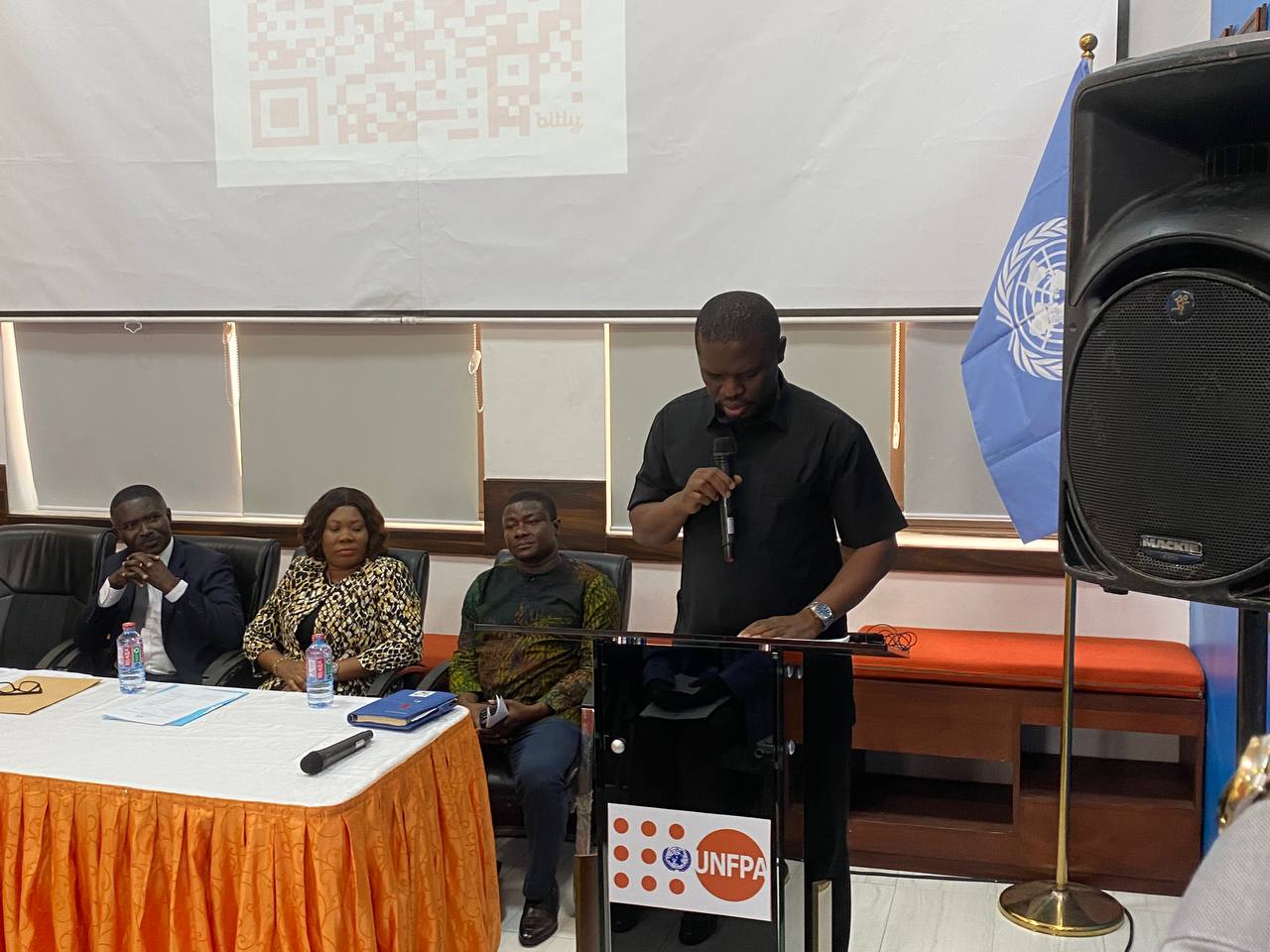
Hon. Mustapha Ussif, Minister for Youth and Sports, while inaugurating the working group, emphasized the importance of this initiative, stating, “This initiative marks a significant milestone in our collective effort to enhance peace and security, particularly among the youth of our beloved nation.”
He acknowledged Ghana’s democratic values, stable political climate, and commitment to peace and security, but also highlighted the challenges that threaten these values.
“Although Ghana has not experienced armed conflicts or grave humanitarian consequences, there have been a number of violent ethnic conflicts with adverse impacts on especially women, youth, and children, “the, Minister said.
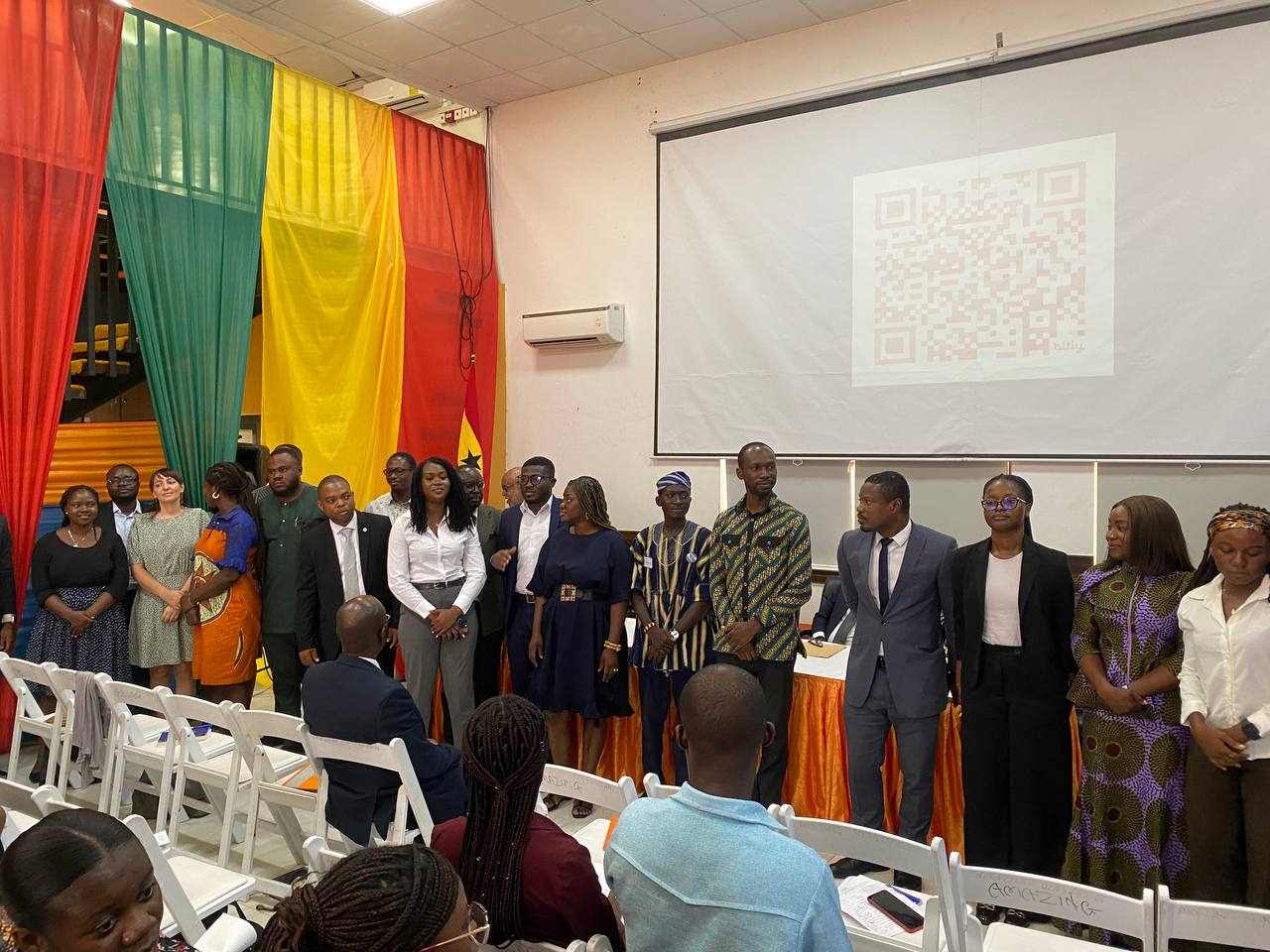
The Minister emphasized the crucial role young people play in promoting peace and security, citing the UN’s Resolution 2250 on Youth, Peace, and Security.
“The UN recognizes the importance of including young people in the peacebuilding process and addressing their specific needs and concerns in conflict-affected areas.”
He commended the National Youth Authority and the UN for spearheading the development of a comprehensive national Action plan, which will serve as a framework for the government to address the unique challenges faced by young people and harness their potential as agents of positive change in matters of peace and security.
The National Youth Peace and Security Working Group, comprising individuals with diverse knowledge and expertise, will conduct a comprehensive analysis of the current situation of youth peace and security in Ghana and identify the main drivers behind violence and conflict affecting the youth.
“The group will organize consultations with various stakeholders, including the youth, civil society, organizations, academia, government officials, to gather feedback and perspectives on the subject matter,” explained the Minister.
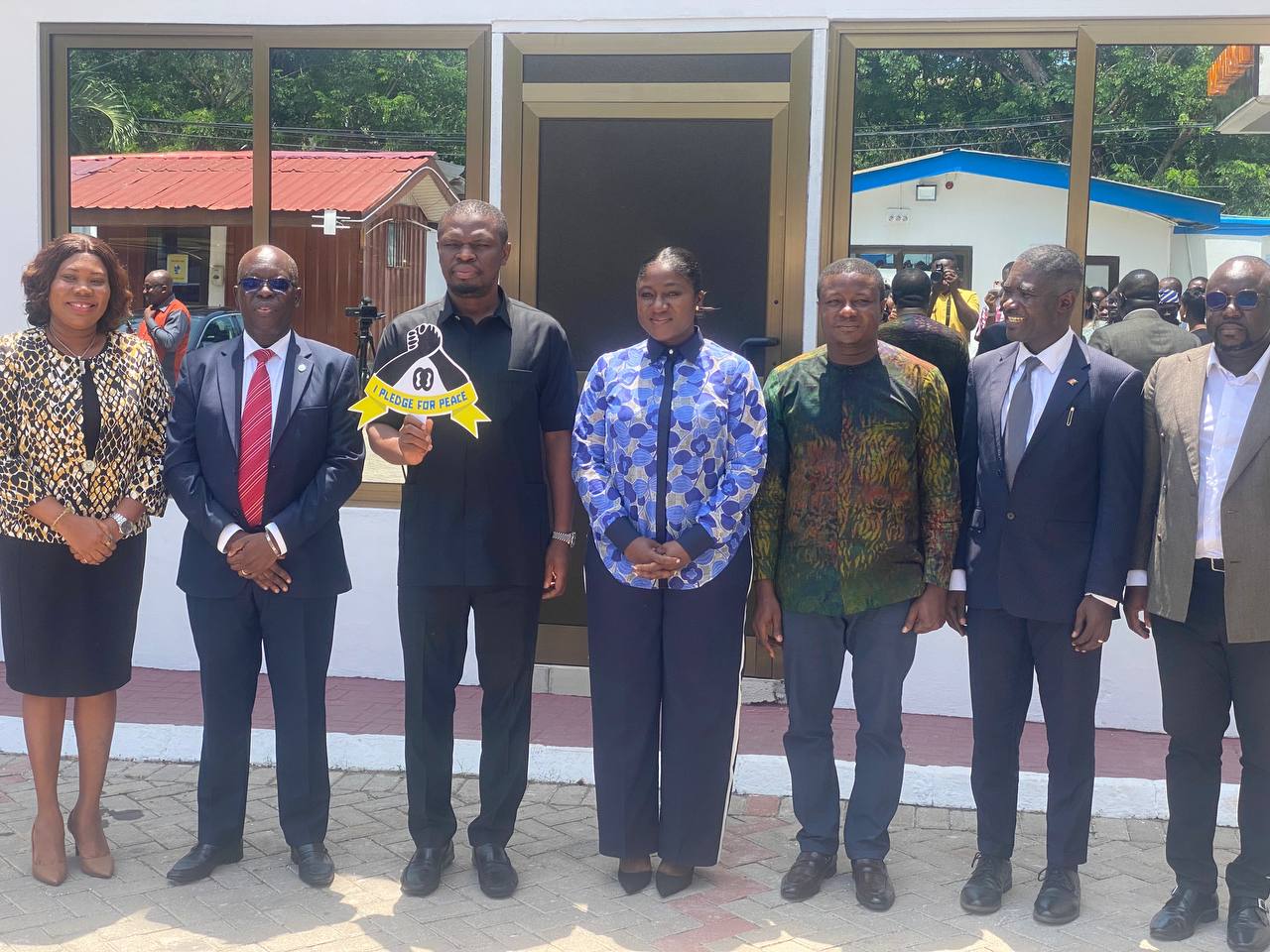
Based on the findings, a robust national action plan on youth peace and security will be drafted, outlining specific policy measures, strategies, and initiatives to address the challenges faced by young people.
The Minister urged young people to recognize the immense power they hold in shaping a peaceful and secure future for all.
“Your involvement in promoting peace and security is not only beneficial, but also necessary for stability and development of our beloved country, Ghana.”
He encouraged constructive dialogue, distance from hate speech, and participation in peaceful political processes, and urged young people to be ambassadors of peace in their various communities.
“Your action can inspire others and create a ripple effect that strengthens our national unity. Let us prioritize the welfare of our nation above all else and work together to ensure a fair, transparent, and peaceful election.”
The Minister also emphasized the importance of prioritizing the welfare of the nation, especially during the upcoming 2024 election.
“Let us remember that peace is not just the absence of conflict, but the presence of justice, equality, and opportunities for all. By involving our youth in peacebuilding efforts, we are not only securing the present, but we are also investing in the future where Ghana can thrive in line with the SDGs.”
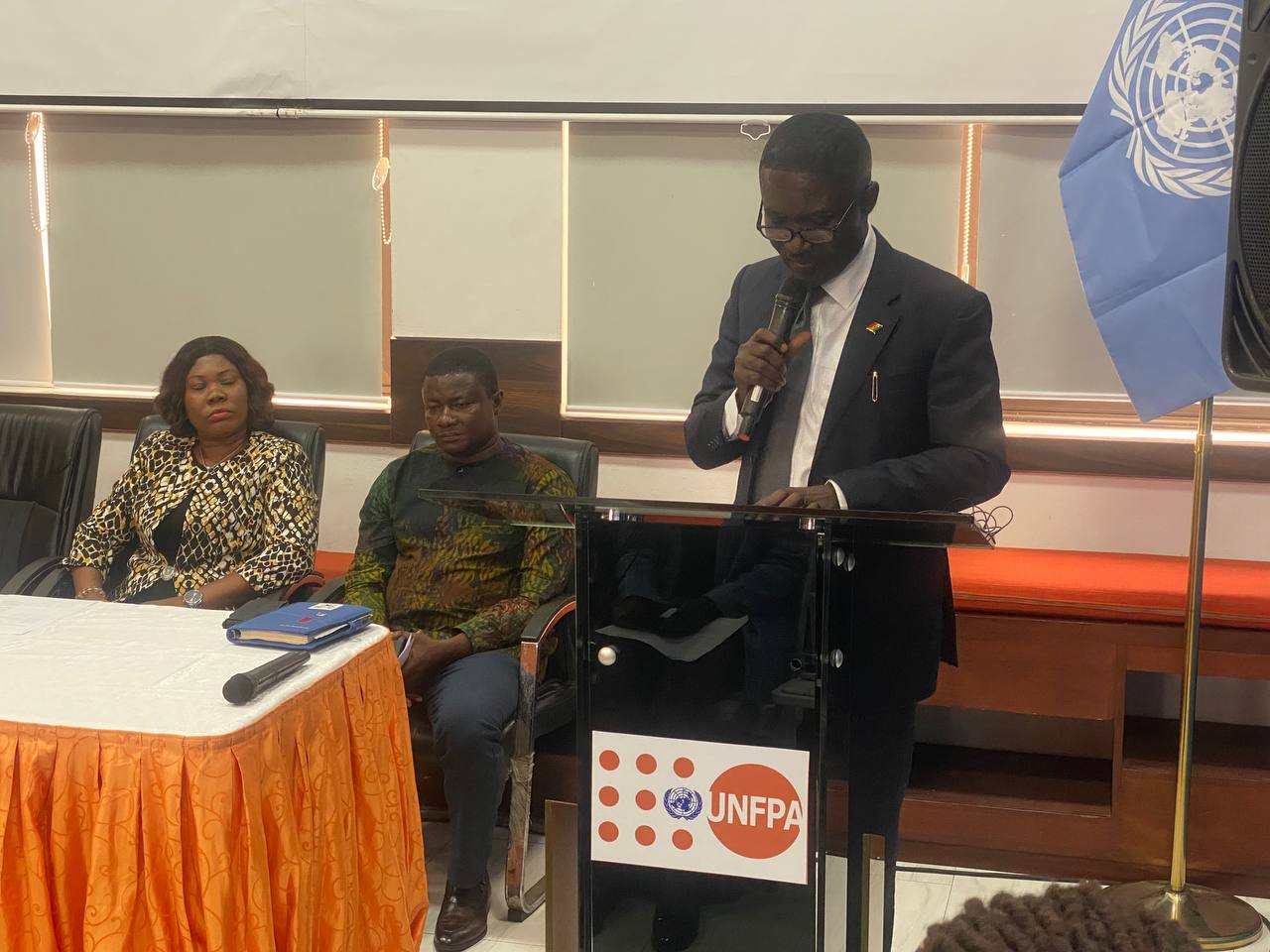
The Executive Secretary of the National Peace Council, Mr. George Amoh, who also spoke at the inauguration, commended the initiative. He emphasized the importance of providing a conducive environment and necessary support for young people to achieve their potential
“Creating this platform is a testament to your belief in the potential of our youth to make meaningful contributions to peace and security of our country and the world. Our youth are a dynamic force for positive change. Their energies, creativity, and resilience are vital in addressing the complex issues that confront today’s world,” he said.
Mr. Amoh also encouraged the group to promote inclusivity and diversity, saying, “We can only survive when we co-exist in harmony. Understanding that all of us cannot belong to one political group.”
As Ghana approaches another crucial election, Mr. Amoh cautioned against vigilantism, which was a critical issue in the 2020 elections. He urged the Working Group to mobilize their colleagues in support of peace and to excel as agents of rebranding Ghana.
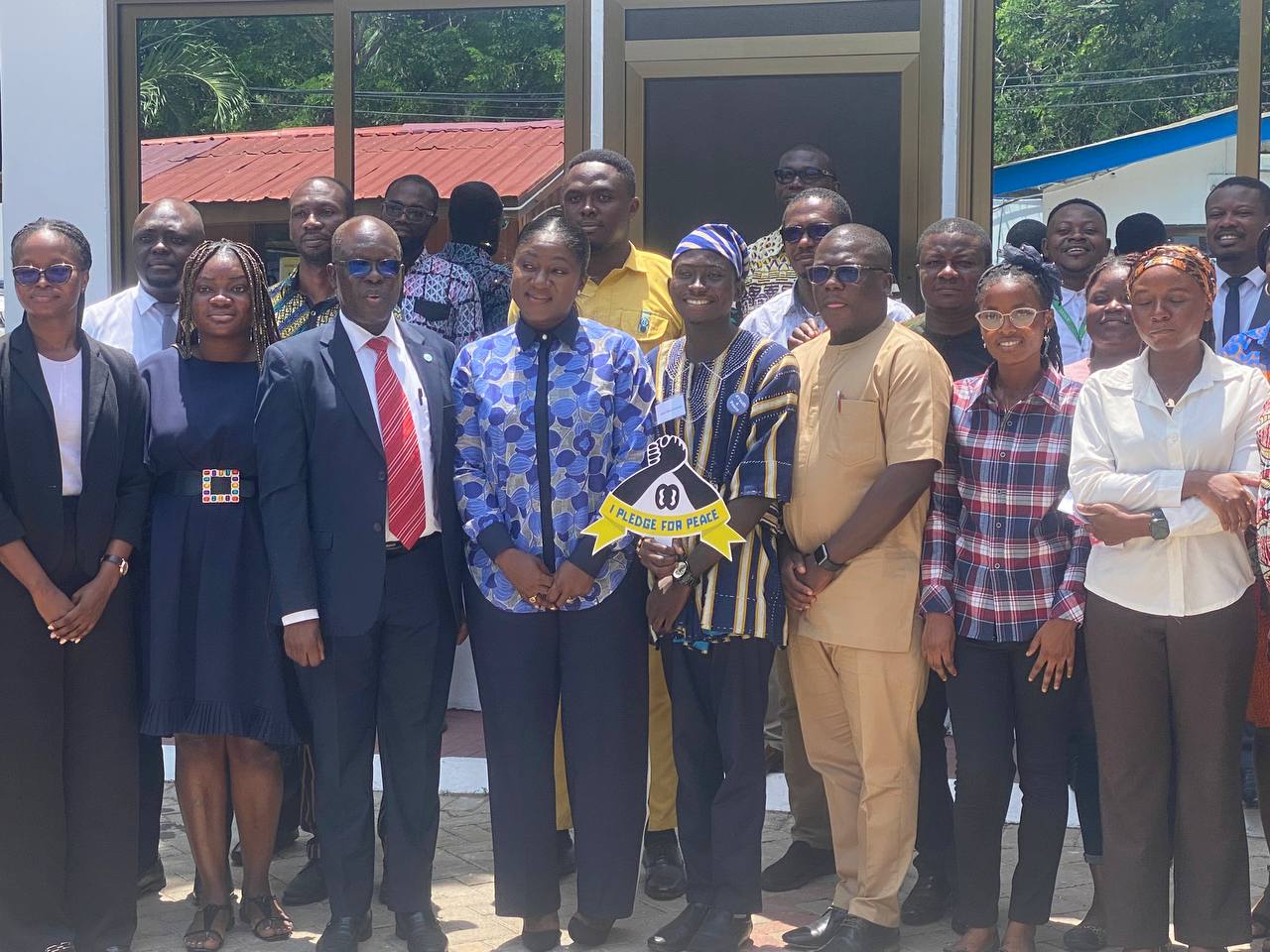
The National Peace Council has developed a guideline on hate speech and intemperate language, which is available on their website. Mr. Amoh encouraged the Working Group to utilize this resource to promote respect and inclusivity in Ghanaian society.
The inauguration of the National Youth Peace and Security Working Group marks a significant step towards empowering young people to contribute to peace and development in Ghana.
More photos below
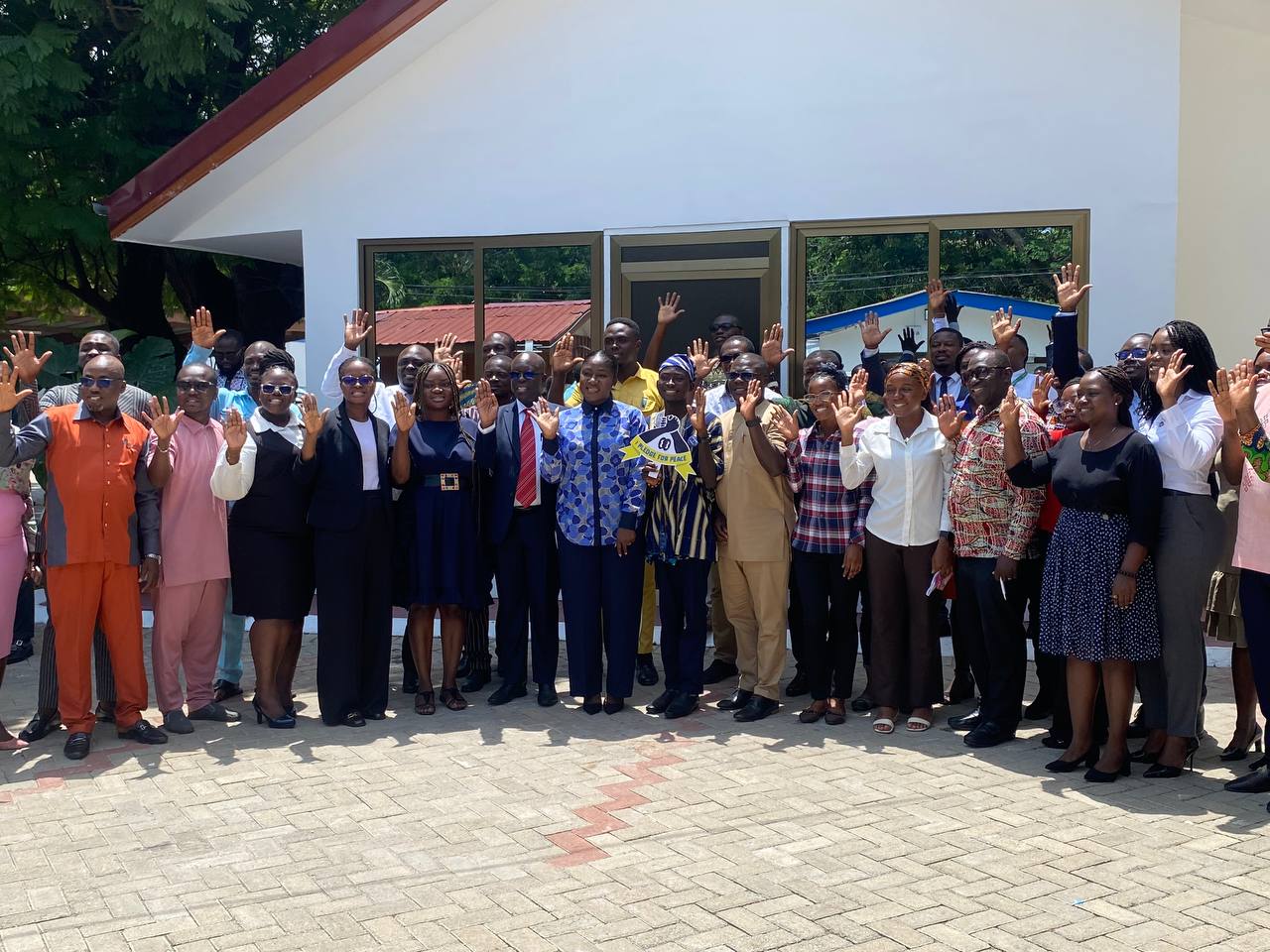
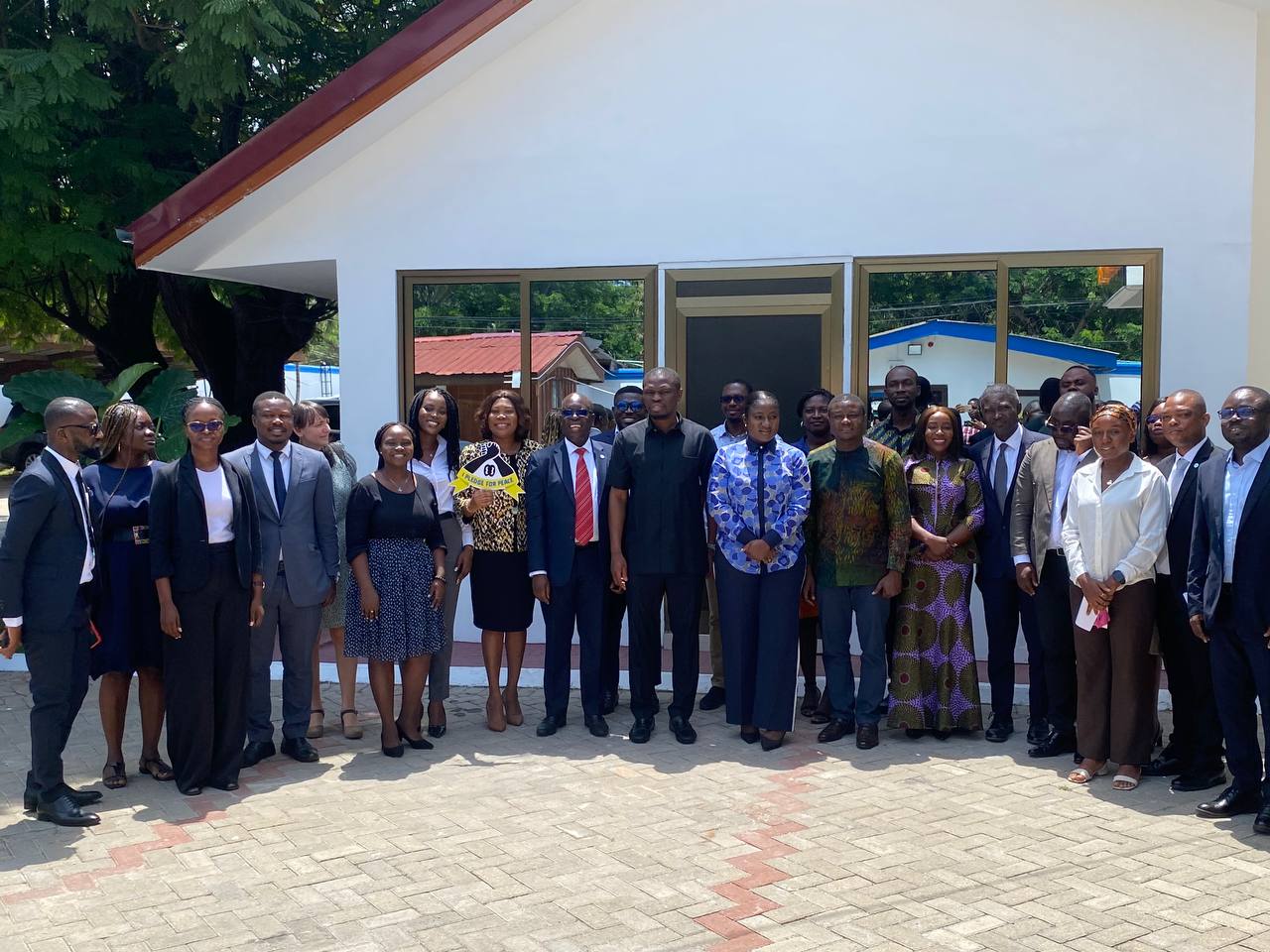
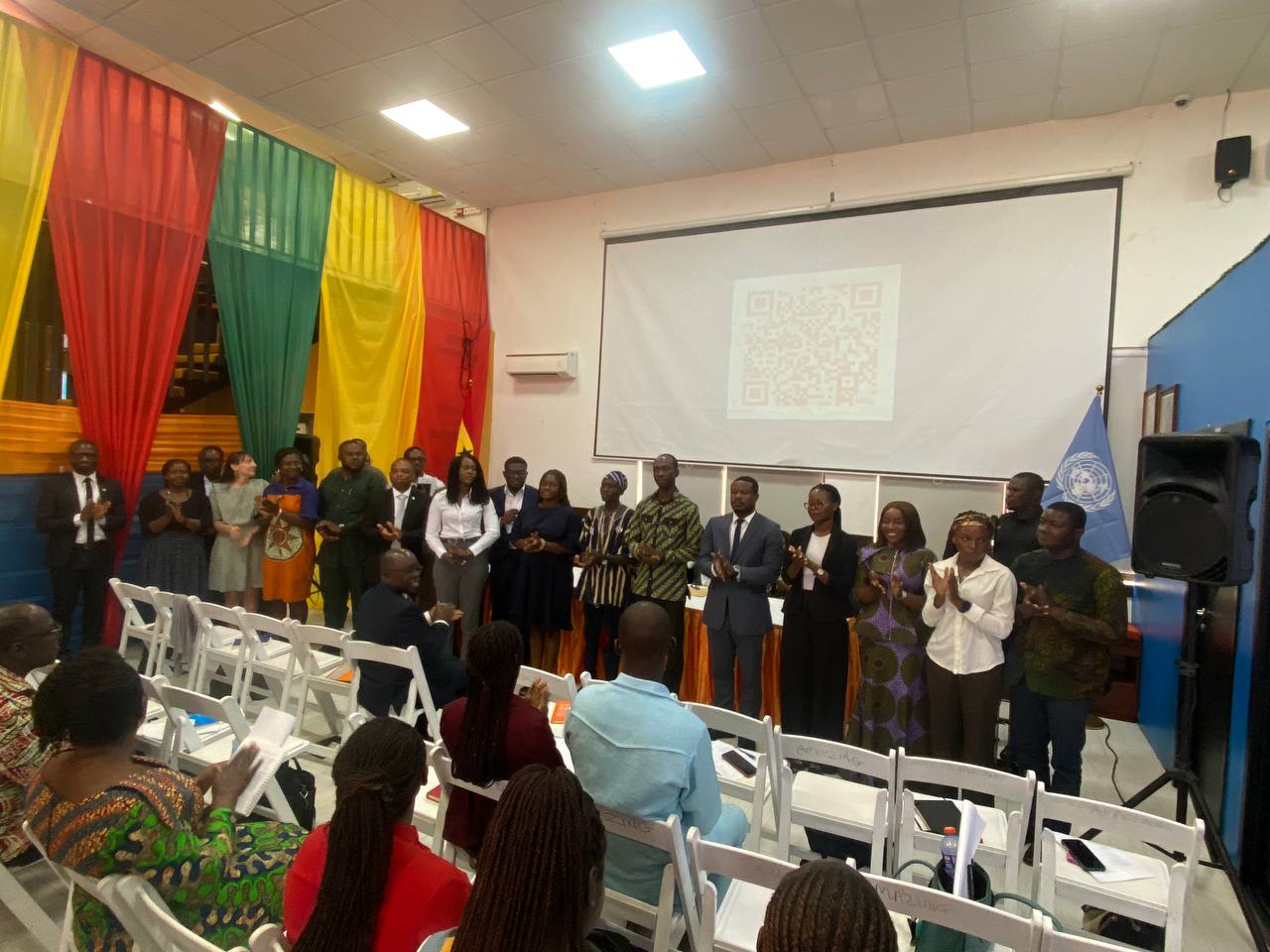
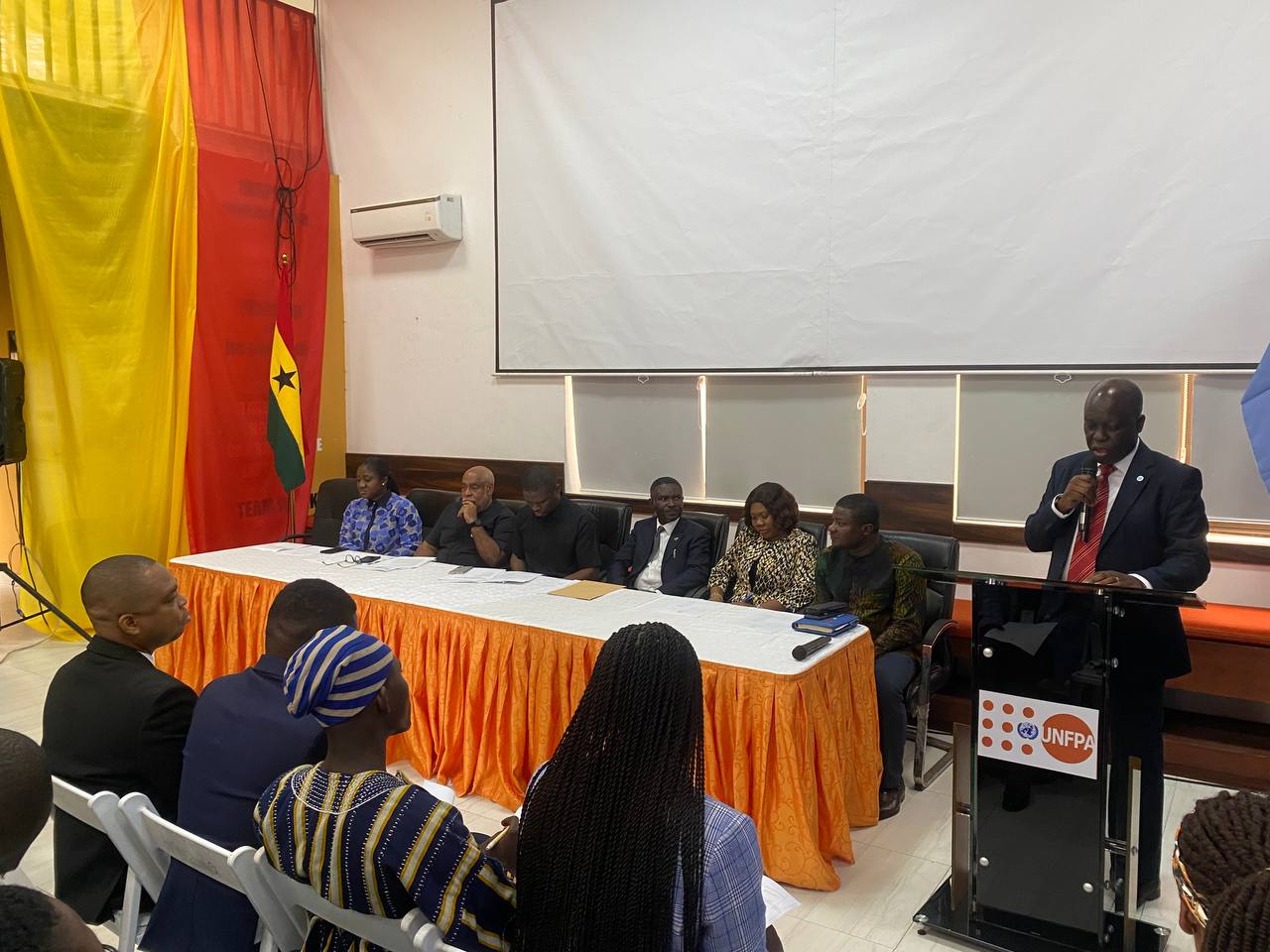
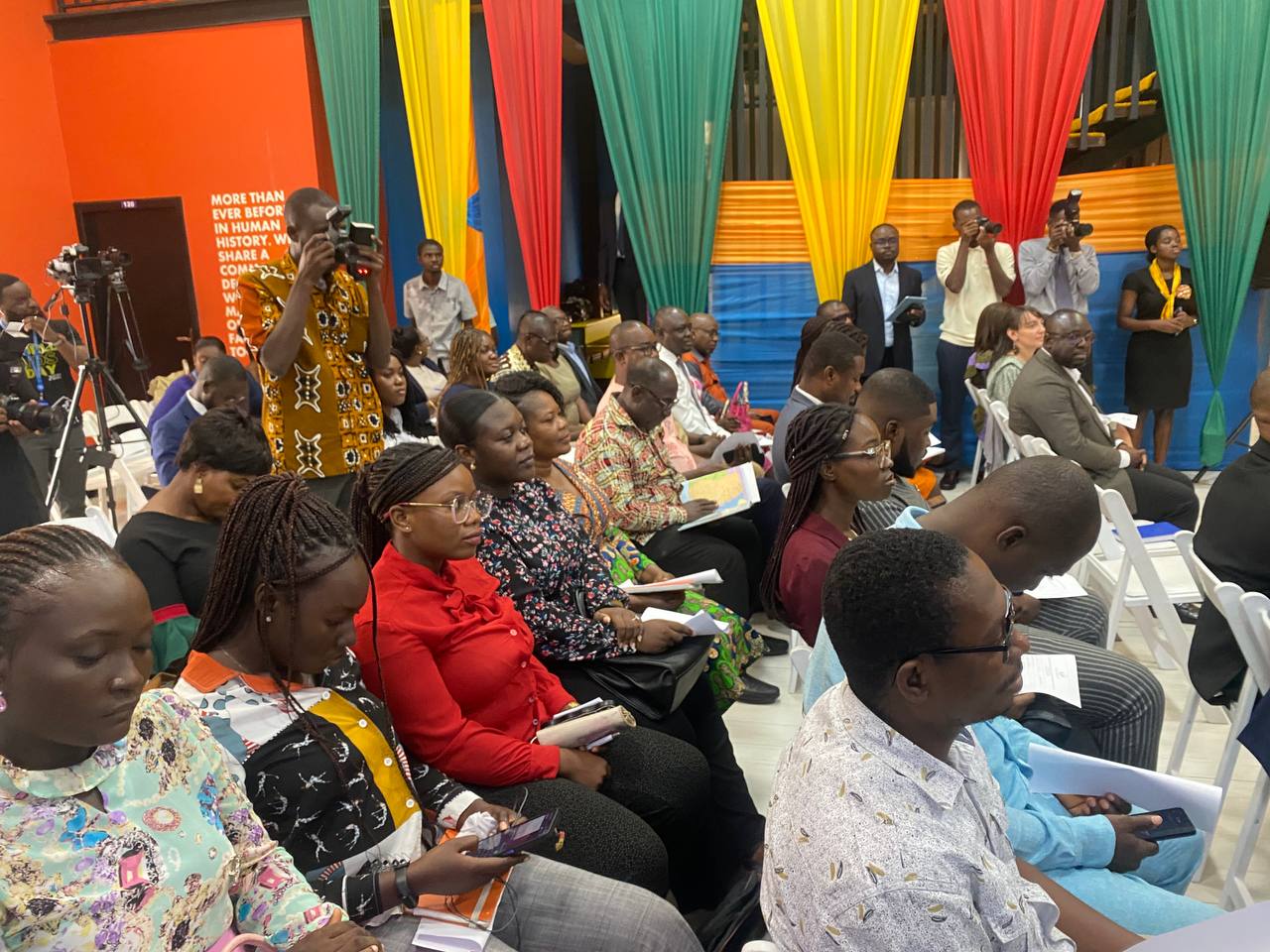
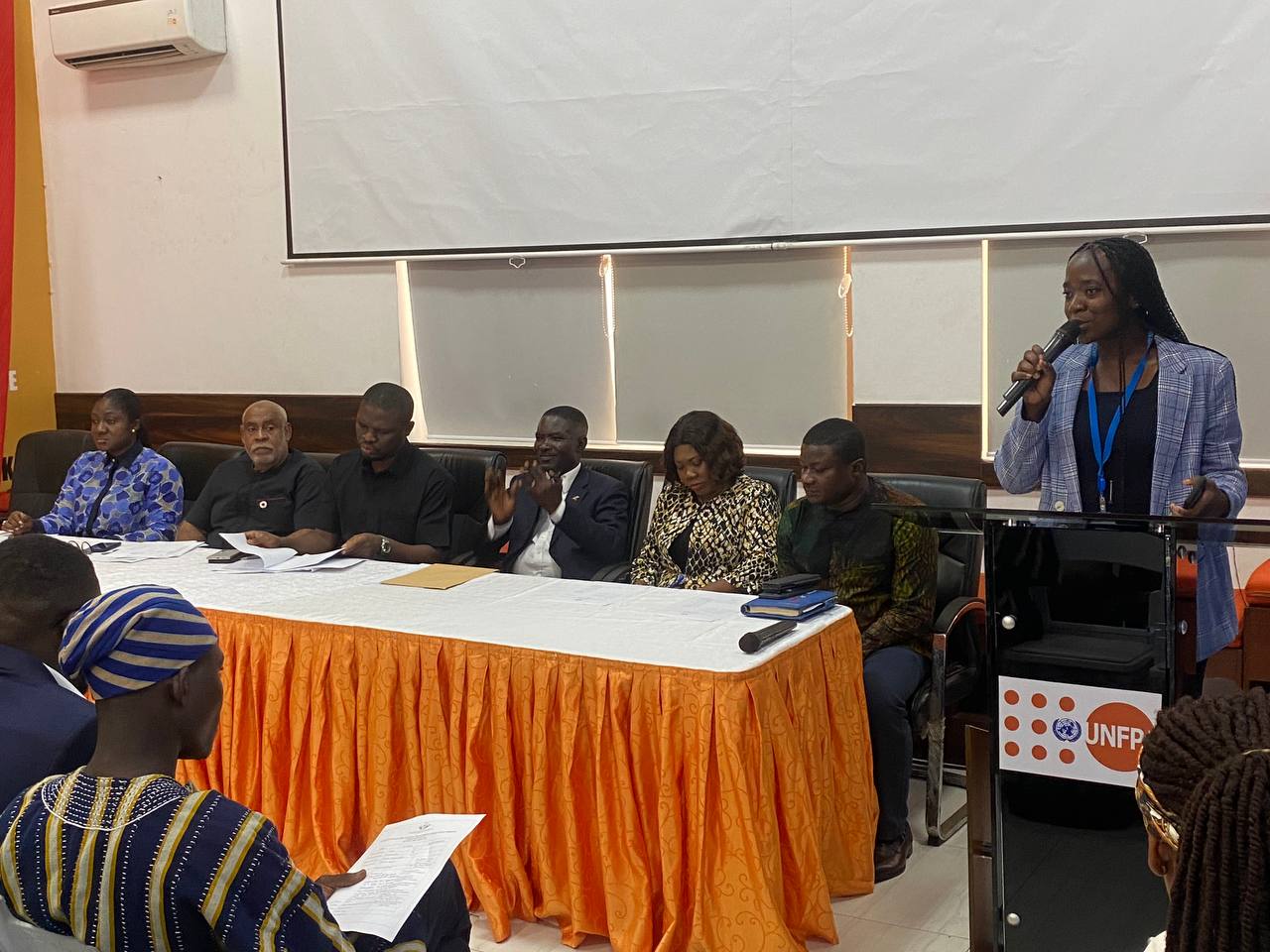
–
Story by: Kelly Adjetey Boye | univers.ug.edu.gh

